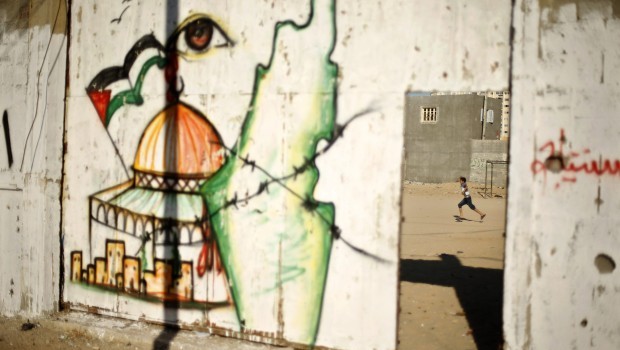The UN has named 2014 as the ‘Year of Solidarity with the Palestinian People.’ The majority of member states adopted the resolution with 110 voting in favor, seven opposed and 54 abstaining.
Secretary-General Ban Ki-moon voiced the UN’s solidarity with the Palestinian people, noting the importance of peace talks aimed at a two-state solution. “We cannot afford to lose the current moment of opportunity. The goal remains clear—an end to the occupation that started in 1967 and the creation of a sovereign, independent, and viable State of Palestine based on the 1967 borders, living side by side in peace with a secure State of Israel. Jerusalem is to emerge from negotiations as the capital of the two states, with arrangements for the holy sites acceptable to all. An agreed solution must be found for millions of Palestinian refugees around the region,” he stated.
In November last year, the UN General Assembly granted the Palestinians observer status at the international organization, thereby implicitly recognizing a Palestinian state. The Palestinian bid has been upheld with 138 votes in favor, 9 against and 41 abstentions.
On the other hand, Israel—more than at any other time, under Prime Minister Netanyahu—has done its best to change the identity of the Palestinians’ land, to alter the name of villages, districts, and streets to Jewish names. It is an old strategy that the Israelis have accelerated.
In 1970, the Palestine Liberation Organization’s research center published a book written by Rouhi al-Khatib, The Judaization of Jerusalem. In addition, the great Palestinian novelist Emil Habibi, in his book Al-Motashael, takes as his theme the appropriation of Palestine and Palestinians, their culture and their lifestyles and their way of thought.
In the last two decades we have seen the strengthening of this strategy. As a matter of fact, it is a serious and dangerous campaign against Palestinian national identity. It is the “Israelization” of Palestine. The core of this strategy is carried out in East Jerusalem. Israel not only wants to demolish Palestinians, but also wants to destroy their culture and their identity. It is not obvious, like killing the Palestinians, demolishing their homes, arresting and torturing their children and so on, but it is an invisible war against them.
On one hand, a very big question arises. The UN named 2014 as the year of Palestine. On the other hand, we are witnessing Palestine, like a lake, evaporating day by day. It is not an accidental event. It is a serious plan, to delete the Palestinians from Palestine. In other words, Palestinians seem to be hated by Israel not only for what they do, but also for what they are.
How should one support the Palestinians in defending their identity? We should take this very important point into consideration, as time is running out.
First, it is very clear that Israel does not want peace with the Palestinians, and does not want to ever recognize the real state of Palestine. On the contrary, Israel’s prime minister and his key ministers are focused on the security of Jewish state. In other words, it means there is no room for Palestinians in their home.
Once upon a time, Qassan Kanafani, who was assassinated by Israel, wrote a book for Palestinian children. He borrowed the idea from the Gospel. “And Jesus said unto him, ‘The foxes have holes, and the birds of the air have nests, but the Son of Man has nowhere to lay His head’.” (Matthew 8:20)
As a matter of fact, Israel is doing its best to establish the issue of Palestine as a thing of the past and forgotten issue. For instance, at a recent closed seminar in Abu Dhabi, Israeli President Shimon Peres delivered a keynote address in which he did not talk about Palestine, but focused on a common danger in the region: Iran.
Thomas Friedman narrated the story of the security conference in an article in the New York Times. “I attended a Gulf security conference here in Abu Dhabi that included officials and experts from all over the Arab/Muslim world,” he wrote. “In the opening session, Shimon Peres, Israel’s president, flanked by the white and blue Israeli flag, gave an address by satellite from his office in Jerusalem. Good for the United Arab Emirates, the conference sponsor, for making that happen. Seeing the Israeli president speak to an audience dotted with Arab headdresses reminded me of the Oslo days, when Israelis and Arabs held business conferences in Cairo and Amman. But this tacit Israeli-Sunni Arab cooperation is not based on any sort of reconciliation, but on the tribal tradition that my enemy’s enemy is my friend—and the enemy is Iran, which has been steadily laying the groundwork to build a nuclear weapon.”
This is the core of the disaster in the Muslim and Arab world. This is a strange game. Israel is playing, and the playing field is Iran not Israel. Israel is exaggerating the danger of Iran’s nuclear program, to draw attention away from the Palestinian issue.
2014 is the year of Palestine, not the year of Iran. If all Islamic countries focus on Palestine, they will be closer to each other, but if they focus on Iran, they will be divided and become more isolated.
